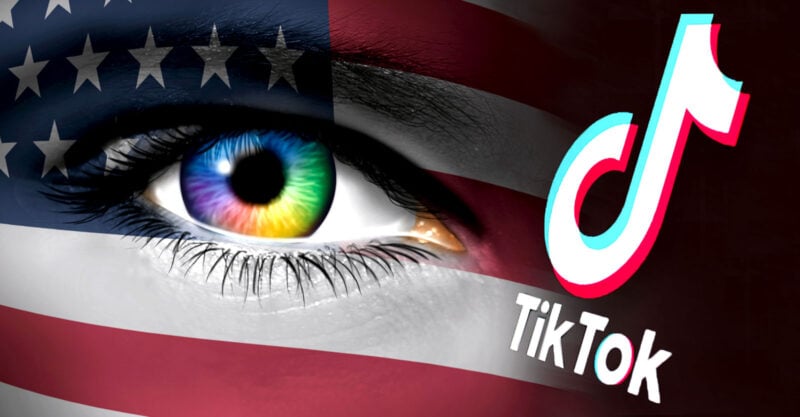
U.S. lawmakers are considering a bill that would grant the U.S. government vast new powers to surveil and censor U.S. citizens.
The RESTRICT Act — the Restricting the Emergence of Security Threats that Risk Information and Communications Technology Act, or Senate Bill 686 — would give the federal government new powers ostensibly to mitigate national security threats posed by technology products from countries that the U.S. deems adversarial.
The bill would grant the U.S. secretary of commerce the authority to “identify, deter, disrupt, prevent, prohibit, investigate, or otherwise mitigate” national security risks associated with technology linked to a foreign adversary.
There are only six countries on the foreign adversary list — China, Iran, North Korea, Venezuela, Russia and Cuba — but the bill allows the secretary and Congress to add any other country “if it became necessary.”
The bill does not stipulate the criteria for adding a country.
Additionally, the bill would give the commerce secretary the power to negotiate, enter into, impose and enforce “any mitigation measure” in response to national security risks.
The bill’s “broad” and “vague” language puts a great deal of power into the hands of the executive branch, according to critics, including the Electronic Frontier Foundation (EFF), a “leading nonprofit organization defending civil liberties in the digital world.”
The EFF called the bill a “dangerous substitute for comprehensive data privacy legislation.”
Meanwhile, the White House “applauded” the bill, stating that it would “empower the United States government to prevent certain foreign governments from exploiting technology services operating in the United States in a way that poses risks to Americans’ sensitive data and our national security.”
The bill — which has yet to be scheduled for a vote — would create a legal framework through which the U.S. government could ban TikTok.
TikTok is regarded as a national security risk by some U.S. lawmakers who fear that its Chinese parent company, ByteDance, might share sensitive information from the more than 150 million U.S. TikTok users with the Chinese Communist Party.
U.S. Big Tech companies including Facebook’s parent company, Meta, and Google’s parent, Alphabet, are expected to benefit from an expanded market share if the U.S. government bans the Chinese-owned TikTok.
‘Mechanism for a massive, sweeping surveillance and censorship overhaul’
However, according to investigative reporter Jordan Schachtel, “This bill is no mere ‘TikTok ban,’ it is a mechanism for a massive, sweeping surveillance and censorship overhaul.”
Michael Rectenwald, Ph.D., author of “Google Archipelago: The Digital Gulag and the Simulation of Freedom,” agreed. He told The Defender:
“The RESTRICT Act is not only aimed at the activities and expression of companies and individuals from nations deemed inimical to U.S. interests; it is a backdoor means through which the federal government can oversee the opinions and activities of all U.S. citizens, increasing the state’s powers of surveillance and abrogating citizen’s first amendment rights.”
Sen. Rand Paul (R-Ky.) also had harsh words for the proposed legislation:
Many on both the Left and Right have criticized the bill, calling it the “Patriot Act on steroids” or the “Patriot Act 2.0.”
Weeks after the September 11 attacks, the U.S. government passed the USA PATRIOT Act, which the American Civil Liberties Union said was “an overnight revision of the nation’s surveillance laws that vastly expanded the government’s authority to spy on its own citizens, while simultaneously reducing checks and balances on those powers like judicial oversight, public accountability, and the ability to challenge government searches in court.”
Critics fear the RESTRICT Act would expand those powers even further.
EFF condemned the bill’s potential threats to free speech, noting that the bill doesn’t require the executive branch to justify its restrictions on expressive technologies like TikTok and that it limits lawsuit challenges to the restrictions it sets.
“Due to undefined mitigation measures coupled with a vague enforcement provision, the bill could also criminalize common practices like using a VPN or side-loading to install a prohibited app,” EFF said. “There are legitimate data privacy concerns about social media platforms, but this bill is a distraction from real progress on privacy.”
Sen. John Thune (R-S.D.), who co-sponsored the bill, said in remarks on the Senate floor that the bill would not allow the government to “surveil Americans’ online content” or “access any American’s personal communications device.”
However, the RESTRICT Act’s broad language could potentially be interpreted to address satellite and mobile networks, cloud services and storage, internet infrastructure providers, home internet gear, commercial and personal drones, video games and payment apps, CNN said.
“Instead of passing this broad and overreaching bill, Congress should limit the opportunities for any company to collect massive amounts of our detailed personal data, which is then made available to data brokers, U.S. government agencies, and even foreign adversaries, China included,” EFF concluded.
Suzanne Burdick, Ph.D., is a reporter and researcher for The Defender based in Fairfield, Iowa. She holds a Ph.D. in Communication Studies from the University of Texas at Austin (2021), and a master's degree in communication and leadership from Gonzaga University (2015). Her scholarship has been published in Health Communication. She has taught at various academic institutions in the United States and is fluent in Spanish.
“© [Article Date] Children’s Health Defense, Inc. This work is reproduced and distributed with the permission of Children’s Health Defense, Inc. Want to learn more from Children’s Health Defense? Sign up for free news and updates from Robert F. Kennedy, Jr. and the Children’s Health Defense. Your donation will help to support us in our efforts.
Subscribe to our evening newsletter to stay informed during these challenging times!!